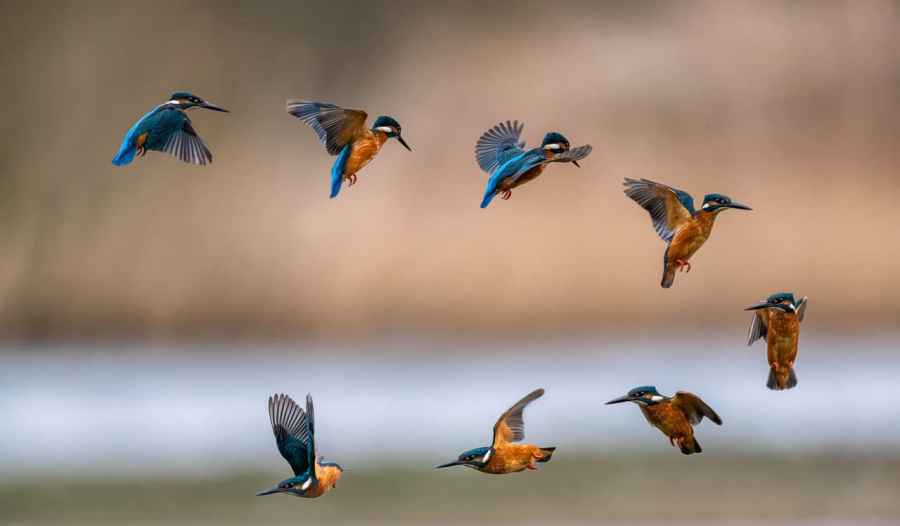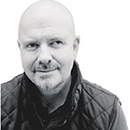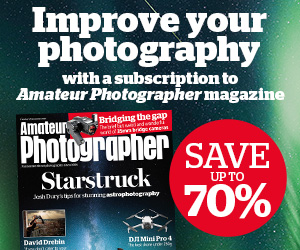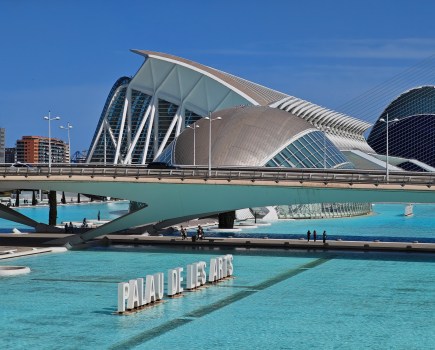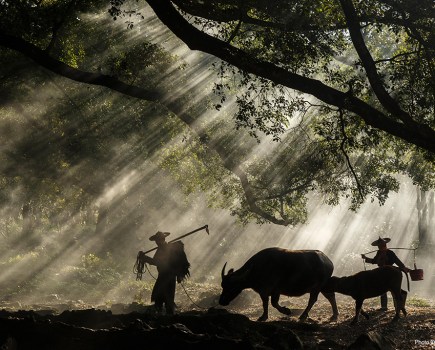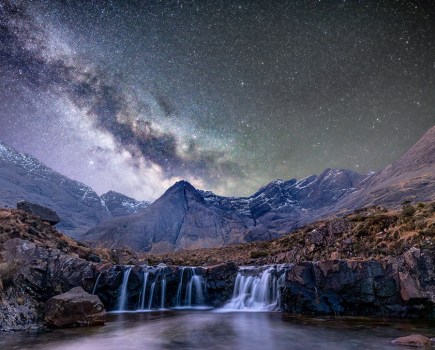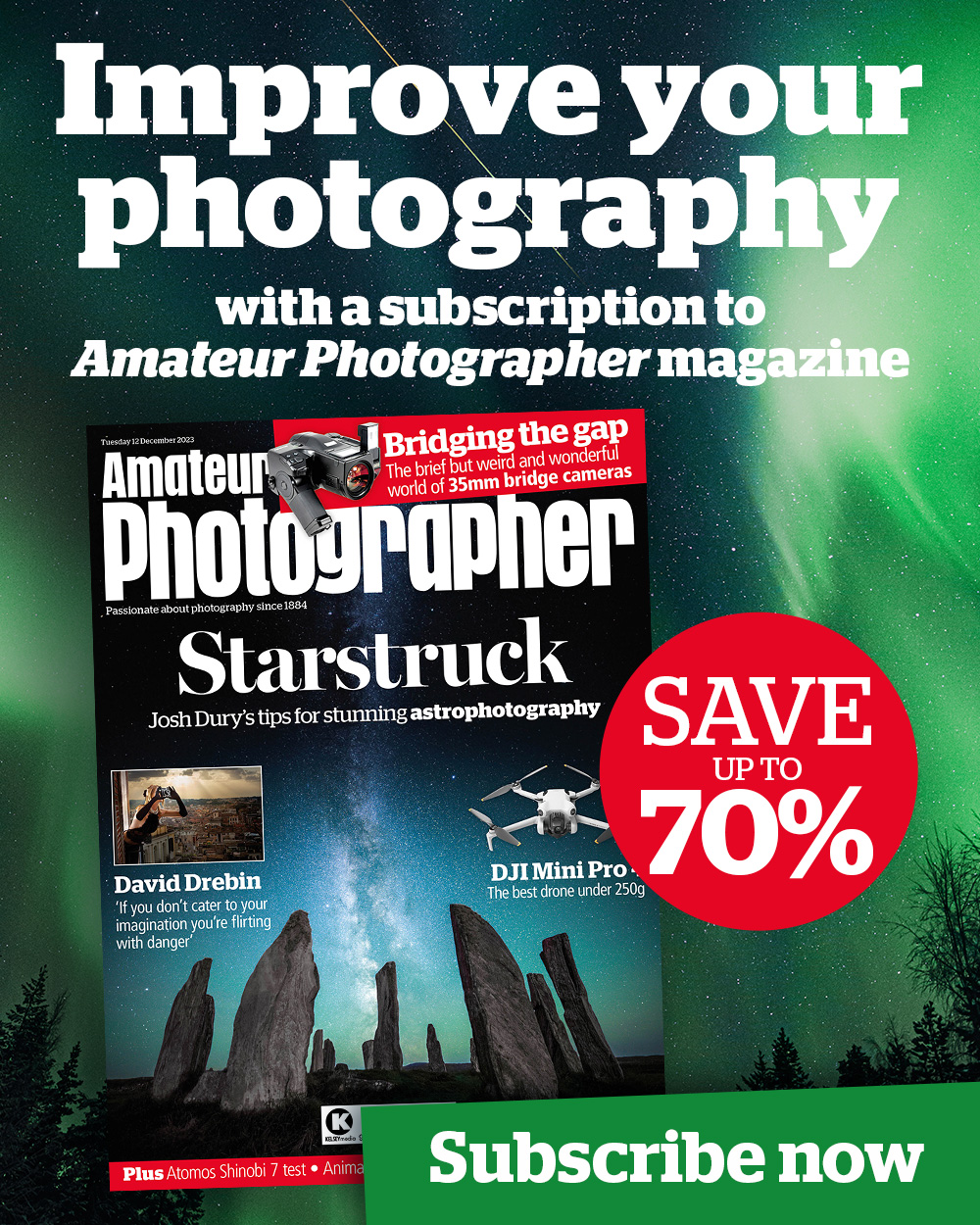Talk about a cruel twist of fate. A decade ago, Ivor Ottley was an internationally celebrated professional violinist and recording artist who was at the top of his game. Then, he developed tinnitus, an ear condition characterised by constant ringing in the ears. Ivor, who was living in Sweden at the time, was forced to return to his home area of Suffolk and figure out what to do with the rest of his life. If losing his beloved career/vocation wasn’t bad enough, he also had to have heart surgery, and while recovering, his sister Julia died.
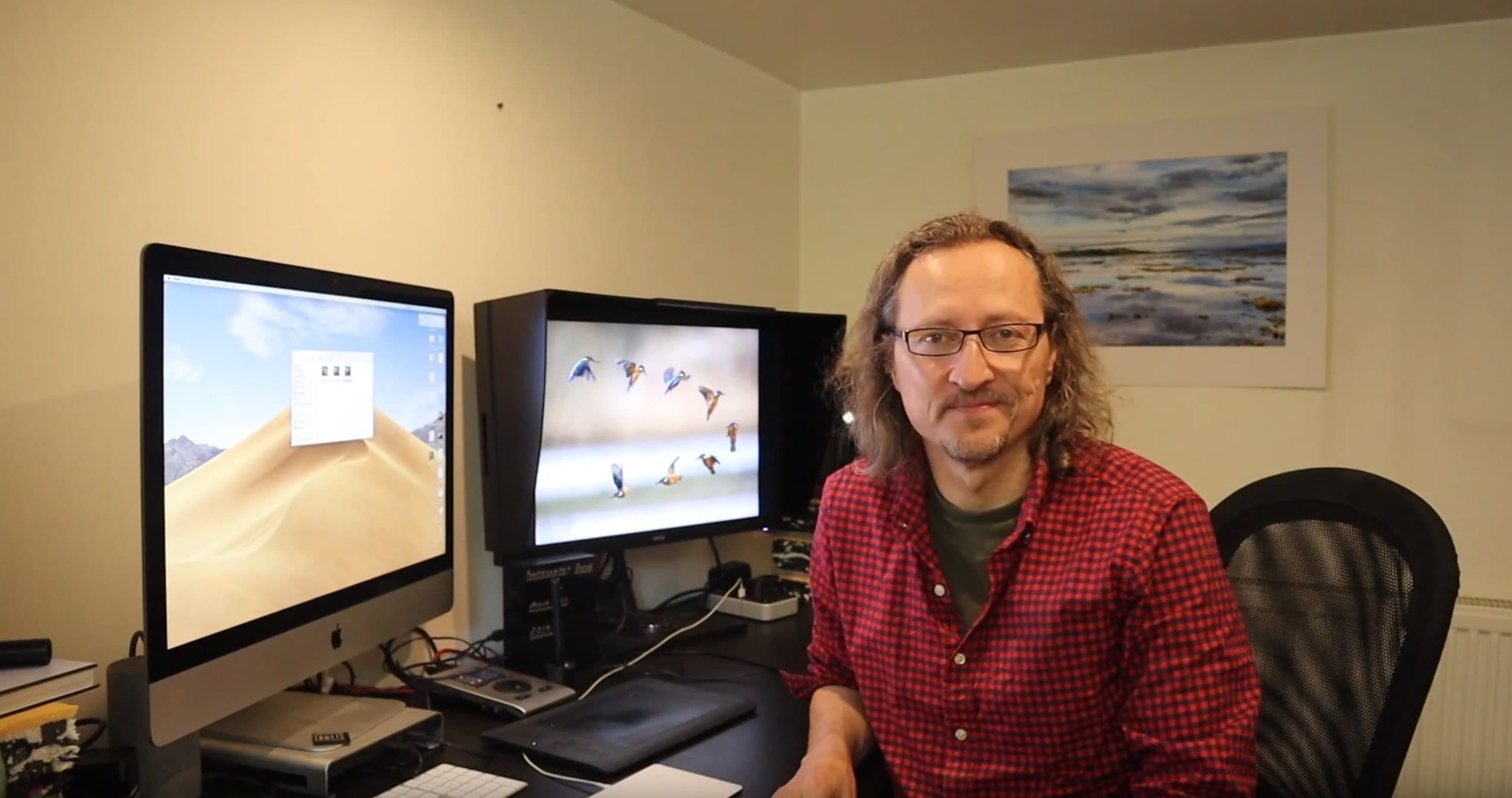
Ivor Ottley
It was after this incredibly tough period that Ivor, 54, turned to photography. It turned out to be the right decision; despite only picking up a camera four years ago, Ivor has made it onto the 2021 shortlist for The British Photography Awards in the category ‘Birdlife’ for a montage image of a kingfisher. We caught up with Ivor to find out more about how photography has been a healing force in his life.
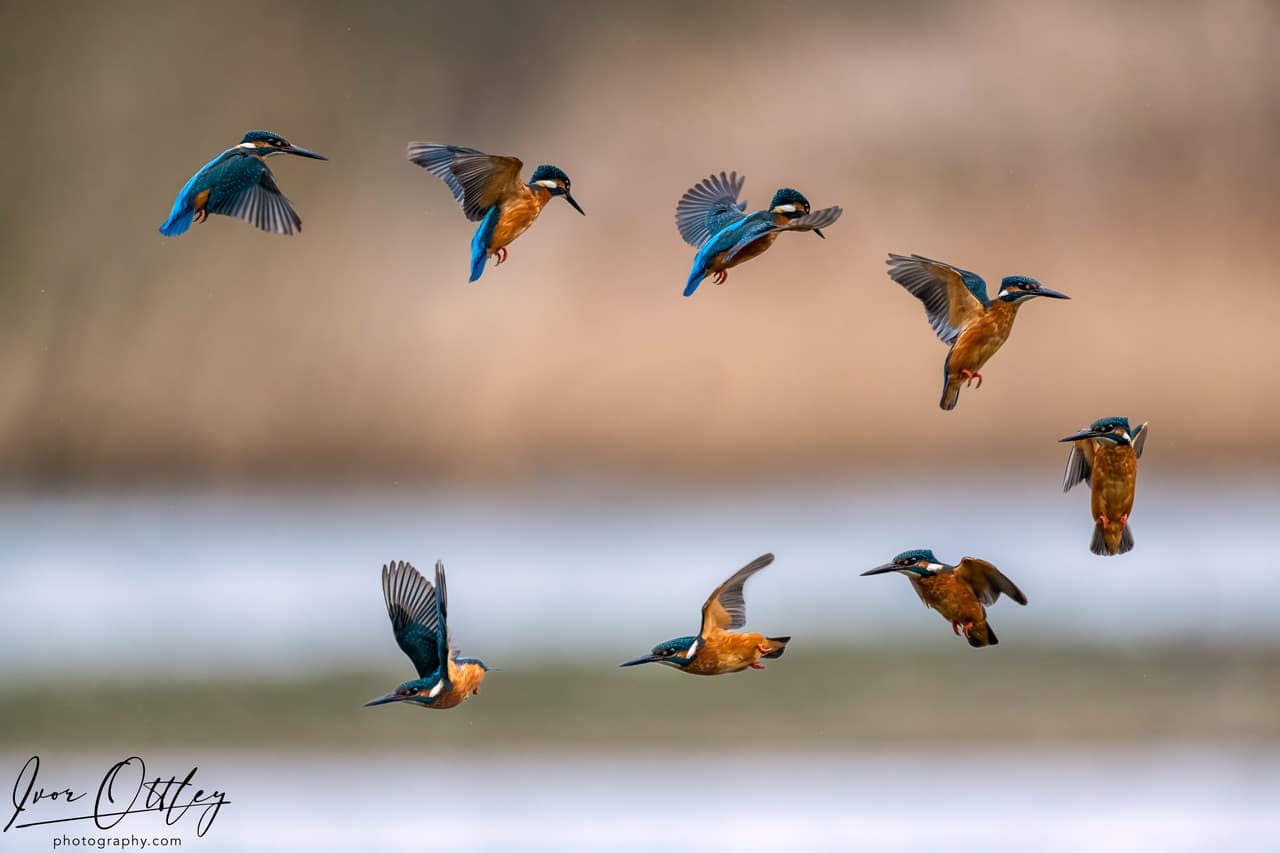
Ivor’s shortlisted image
Had you been interested in photography before you had to retire as a violinist?
I have always had a strong interest in all the arts. I studied a degree in music and related arts in my early 20’s which compared the different art forms of particular eras to one another.
Apart from music, I was particularly interested in painters. My sister Julia was a visual artist, both a painter and sculpture, and she had many books I would borrow on the subject. I am interested in the emotion contained within the different arts forms. Photography really caught my attention when I was looking for a new creative direction once playing the violin became impossible for me due to developing severe tinnitus issues.
I also have a very good friend, Iain, who is keen on photography and the history of photography. He encouraged me to explore it.
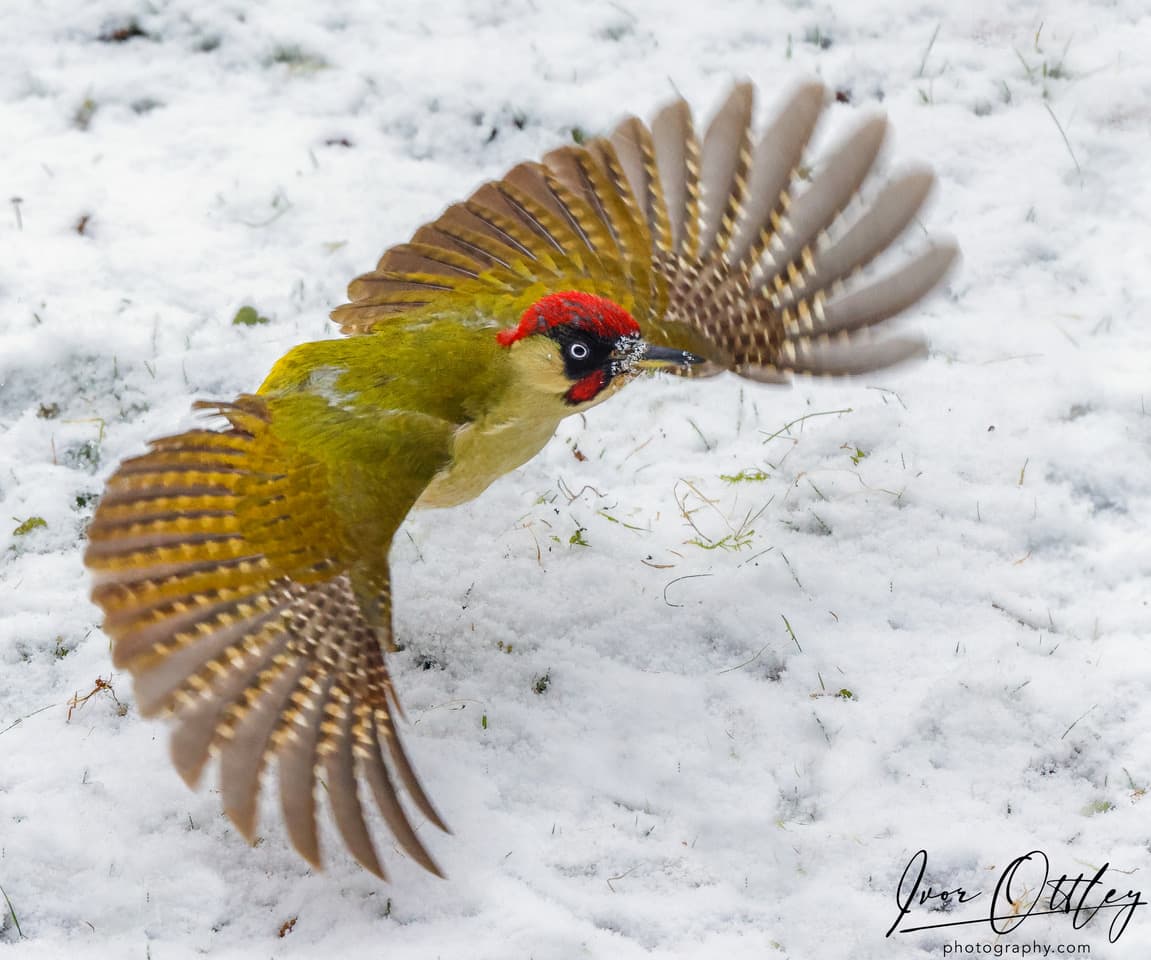
Flying woodpecker
What was it about photography that appealed?
I found myself at a very difficult crossroads in my life a few years ago….My violin career, which I adored and had been very all encompassing, had ended, my artist sister had passed away tragically, and I was also recovering from heart valve surgery.
I needed something to replace the passion I had for my music, as well as needing it to be quiet and reflective….I craved solitude, but in beautiful natural settings, that would help me recover from the losses I had experienced.
Photography allowed me to do all of those things, created another outlet in which to pour my time, creativity and passion. If you look at philosophers such as Nietzsche, you will often see that at times in their lives they isolate themselves within nature, to help find themselves again. I did the same thing.

Scotland
Did you do any courses?
Initially no…I just bought a campervan, my first camera and went travelling to Scotland. I learnt everything from YouTube videos.
I found a way, using bracketing, to shoot images of the wonderful landscapes I was experiencing, whilst knowing very little about photography and the technical sides of it. The bracketing took care of all that for me.
As time went on I learnt the theory. I’m a strong believer that it is only the image I am interested in, that the technique is driven by my desire to create the image. It’s similar in music. I went on jazz courses years ago to improve my jazz playing which I had up to that point taught myself from recordings of the great jazz ‘masters’.
On those courses I noticed people spoke very well about jazz theory, but when it came to actually playing the music, most couldn’t actually play it well at all. I have found I learn far more and far quicker by doing. I would rather find really inspiring photographers and have a chat with them about their work.
Charlie Waite is someone whose work I admire though very different to my own. I feel he too concentrates more on the artistic side of things. Charlie, if you are reading this, can we please be friends!
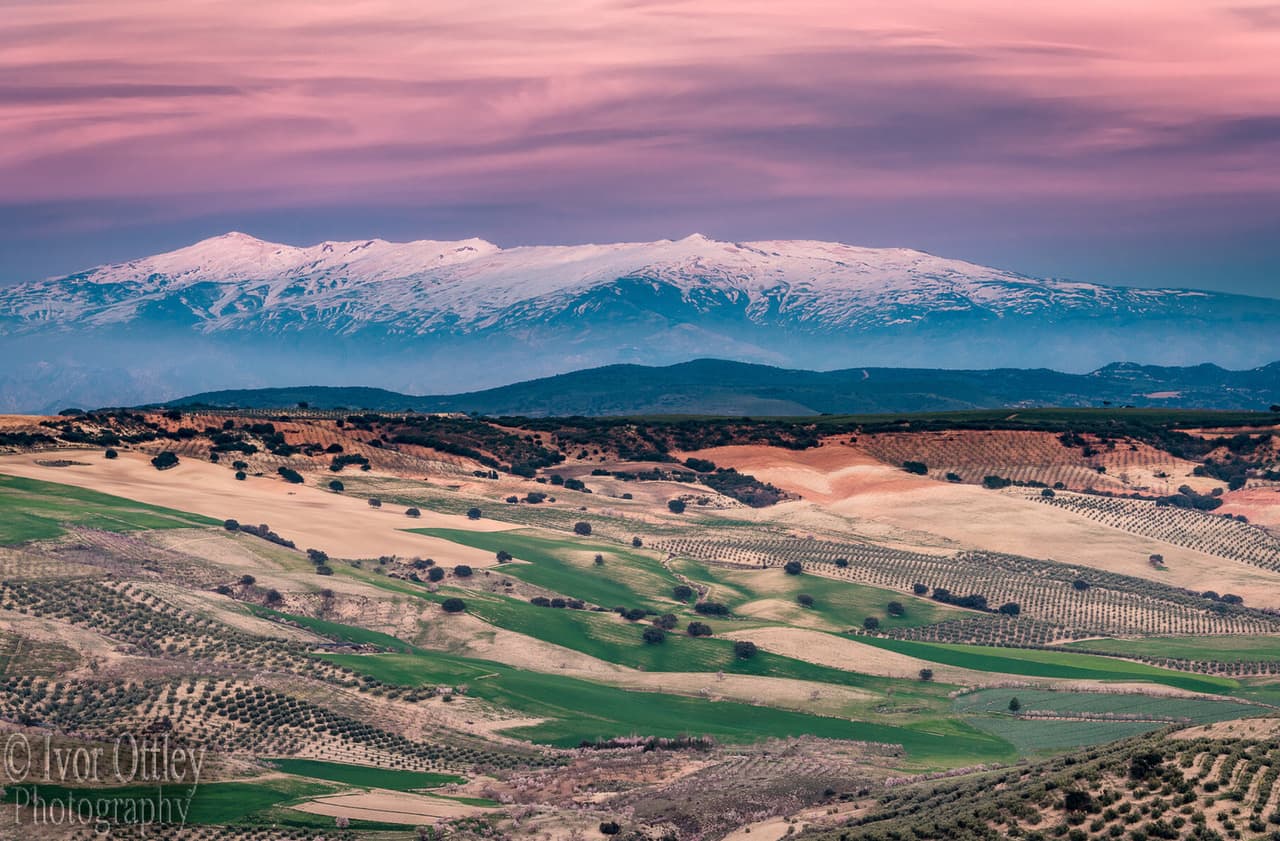
Sierra Mountains, Spain
So you chose nature photography as it surrounded you with peace and quiet…
Yes, I feel in general we all need to absorb ourselves much more in nature…. that it has very healing qualities.
In many ways it is like a form of meditation. Photography for-fills not only an artistic and creative need in me, but a more basic human need to be in touch with the natural world, and in those quiet moments, in touch with myself.
Tinnitus is a common but misunderstood condition. How does photography help you deal with your particular issues?
Tinnitus at the levels I experience it, is life changing. I have loud ringing in your ears 24 hours a day, 7 days a week. Not only that, but I have to constantly protect my ears by avoiding many places I used to love to visit, be that music venues, loud cafes or restaurants, the cinema or theatre.
My life now is made up of a series of quiet places. If I meet friends, it has to be in small groups or singularly, and in quiet cafes or natural settings. If I expose myself to noise, which happens at times often in situations out of my control, my tinnitus worsen, and never returns to the previous level.
It gets worse, but I learn to habituate to it as best I can, just like someone who has to live with chronic pain. Absorbing myself in photography allows me to live a creative life, in the very settings that work for my all round well-being and tinnitus situation.
Actually, much of what I do now to help keep the tinnitus under control, is what we in general should be doing anyway. Why go to a loud place for example to talk to a friend….it’s far nicer to be somewhere quiet and have a more relaxed interaction.
How are you managing to take photographs at the moment?
Luckily my elderly parents live in a lovely old house in Suffolk with a wild garden. During the Covid crisis, I have moved back, partly as they have needed my support, but also I am safer, and have the opportunity to take photographs in a lovely setting.
I have really enjoyed creating natural microcosms … different environments in which I can spend time with, and photograph the local wildlife. I believe we are very lucky in the UK to have such a diversity of nature.
We need to expand on that and return as much to nature as we can. I also believe anyone with even the smallest garden or space, can create wonderful opportunities to take stunning images. You just need to be driven to create what you want with what you have. There are no excuses, you have to use the environment and gear you own, even if that means taking phone images on your kitchen table. It’s the artistic drive that matters and creates some wonderful expressive work.
Are you able to make any money from selling your images? Have you done well in any other competitions?
I did hold an exhibition 6 months after starting photography, and sold prints, but in reality I have only just started to look more deeply into how to make some consistent income from photography. I am currently submitting work to stock agencies for example.
he British Photography Awards, where I have been recently shortlisted, is actually the first major competition I have entered, but I do intend to enter more. I feel the main thing is to create the images that are meaningful to you, and if others like them, that’s wonderful. I don’t want to become too focused on the competitive side of things other than to use it to drive forward my own creativity.
We understand you have trained as a psychotherapist – how do you think photography can help people struggling with mental health issues, particularly at this difficult time?
Photography has many benefits to all who pursue it, but firstly I don’t feel we should separate those who have ‘mental health issues’ from those who don’t. I feel we all contain elements of what can become mental health challenges, it is just when these things become unbalanced that we have issues.
For example we can all have some autistic traits. I would argue that many of the more talented artistic peoples of the world contain more of these elements that others, it is indeed what many make them so talented.
They often see things in a way others may not. I believe anything that gets us back in touch with nature, that allows us quiet reflective time, and engages our passions and artistic natures is good for us. Photography fits the bill perfectly.
What gear are you currently using?
My very first camera, which I purchased four years ago, was a Nikon D810 with the Sigma 24-105 f/4. I am a big believer in getting the best you can afford even if a complete beginner, because it is more inspiring to use such gear and you are only held back by your own skill set , not by the equipment.
In reality I find pro-level cameras far easier to use anyway. I recently switched from Nikons D850 to a Canon R5 which I like very much, especially the auto focus system. I find the differences Between the two systems really interesting. There is a certain clarity to the Nikon files, but I really I like the Canon colour renditioning, for some reason I find the images slightly easier to edit. In an ideal world I would have both, and use them on different kinds of images.
What I would say, is that you need to buy the best you can and then use it so much that it becomes an extension of oneself. Don’t feel you need to spend years absorbing more information….a day in the field is worth a great deal!
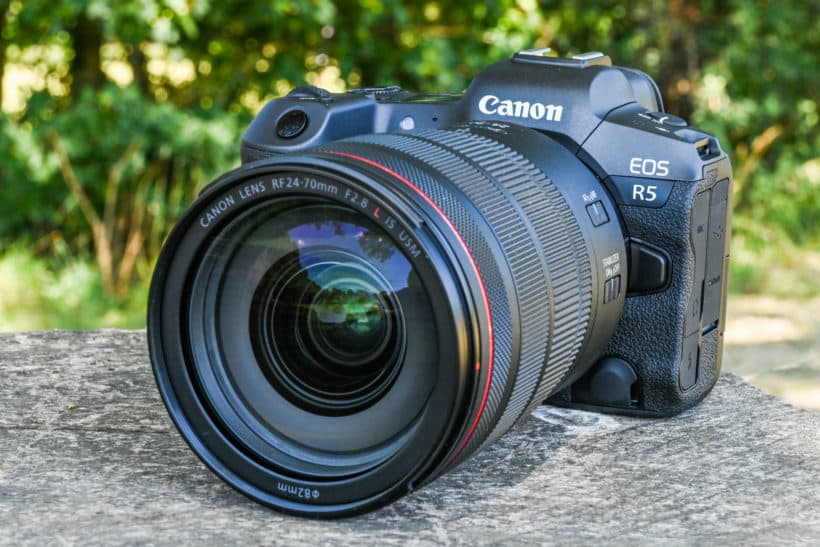
One interesting aspect of gear is that one can use its pros and cons equally in the creative process. I have for example read reviews about rolling shutter with some cameras. The Canon R5, at very high shutter speeds when using the electronic shutter, does exhibit that, but I find it a wonderfully creative effect. If I want a certain look, particularly in bird photography , I will go out go my way to induce it to just the right amount that creates the look I am after. It is art, you make use of all you have, even the things others may see as ‘issues.’
Further reading
How photography can help your mental health

